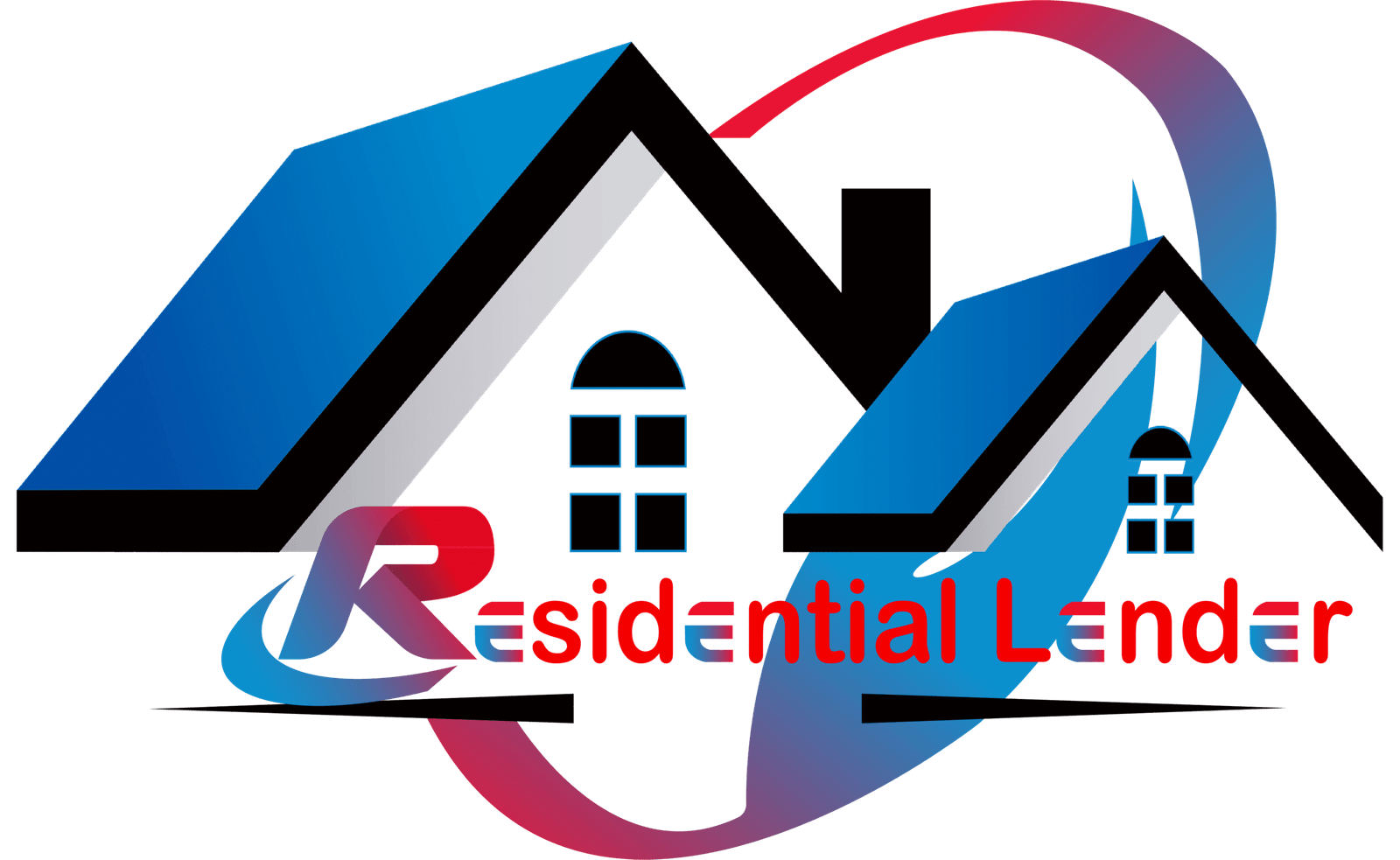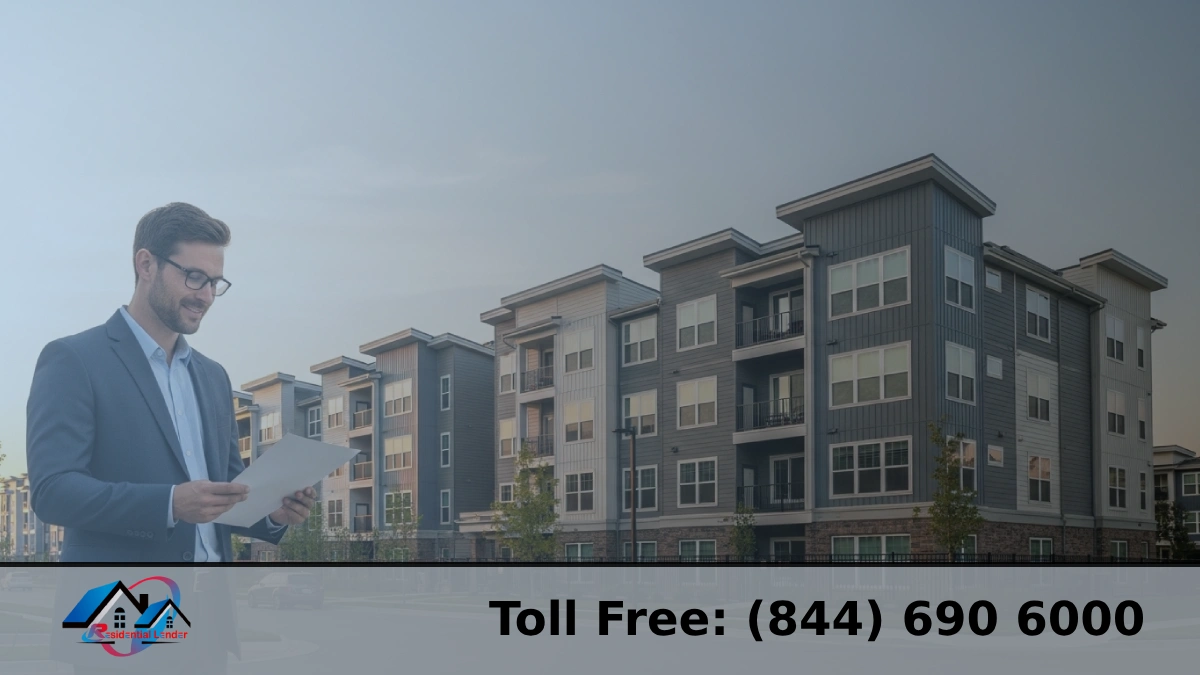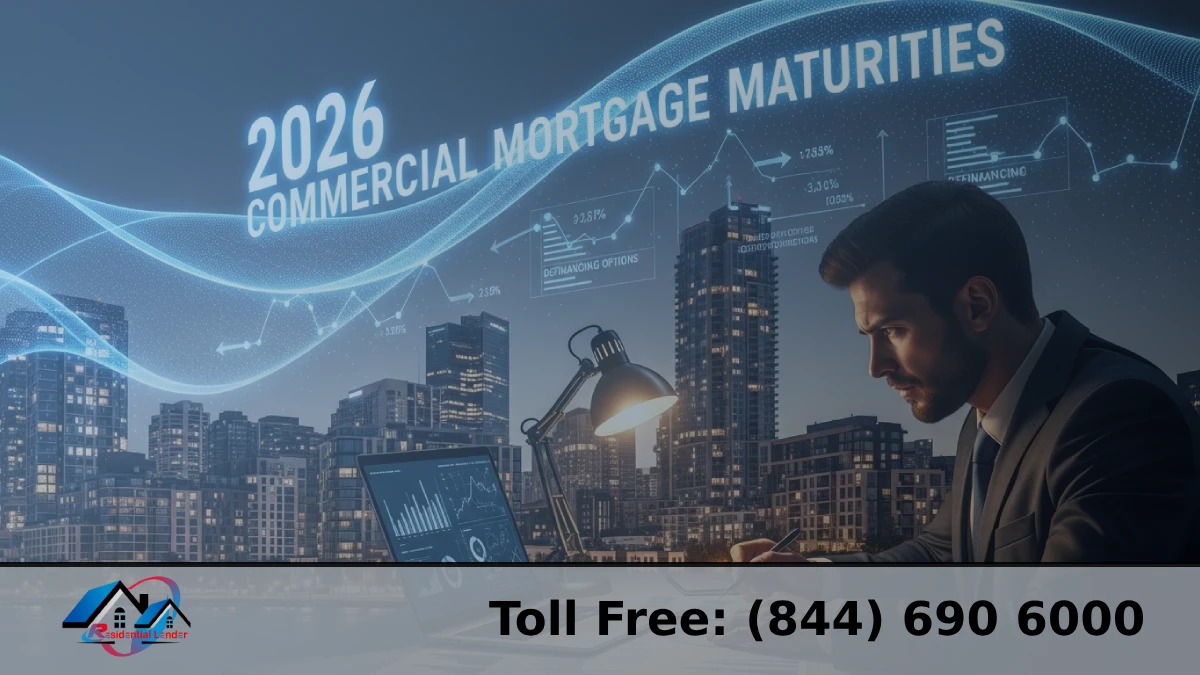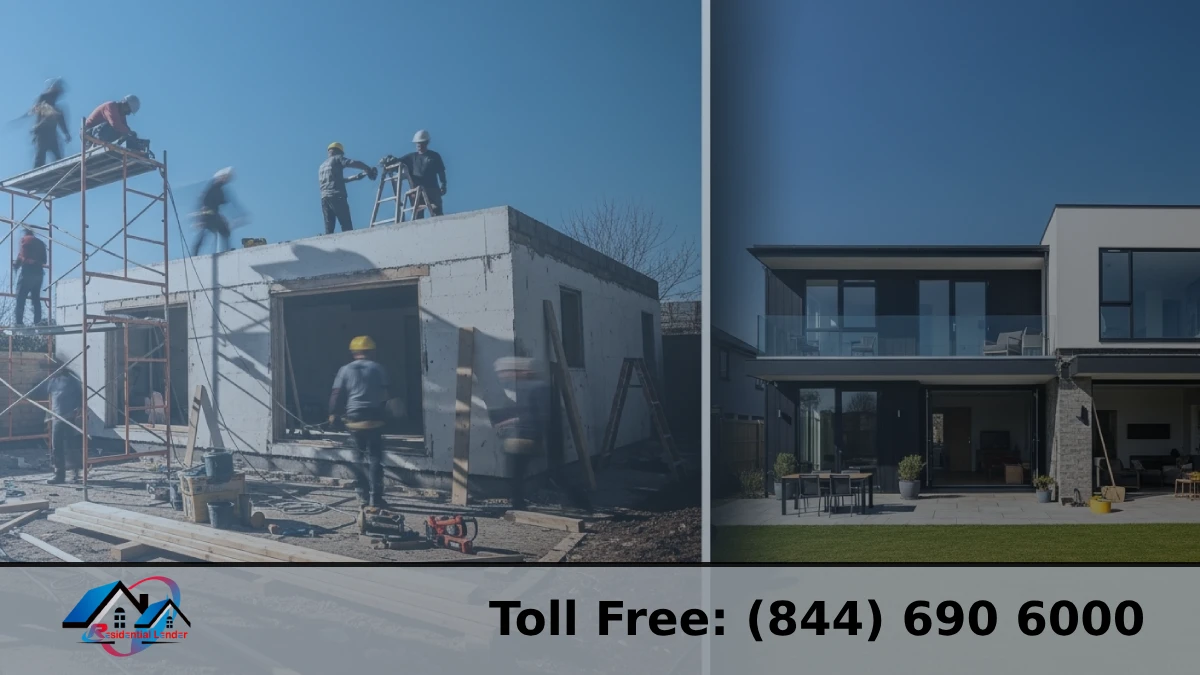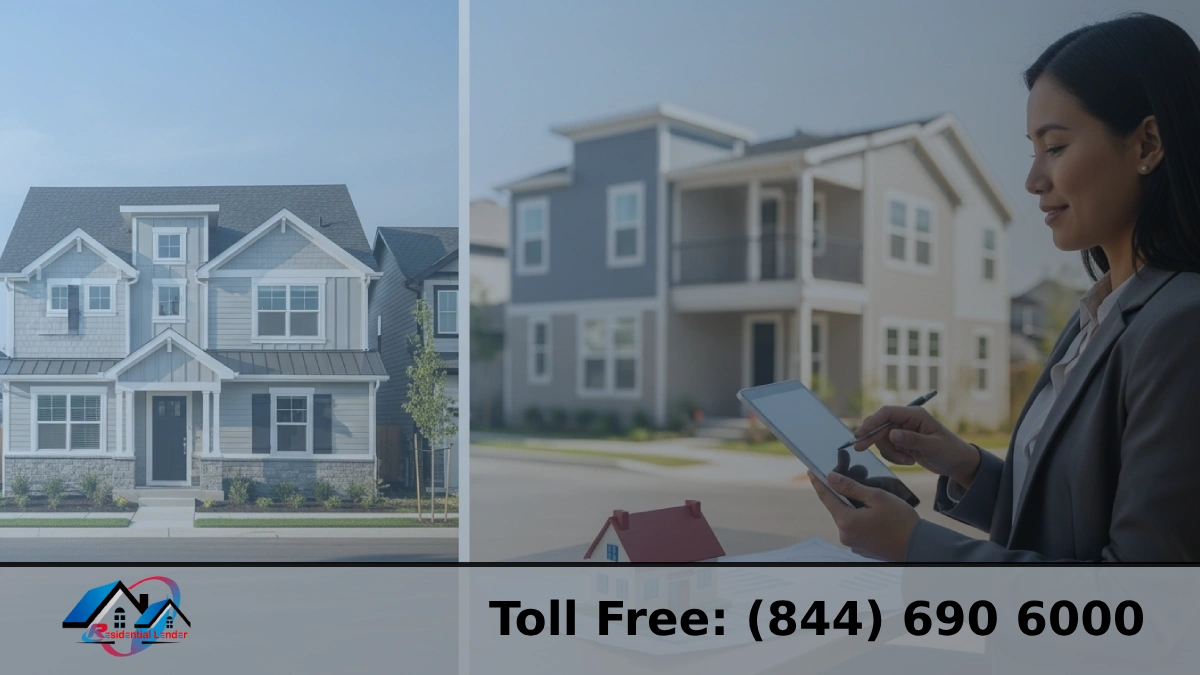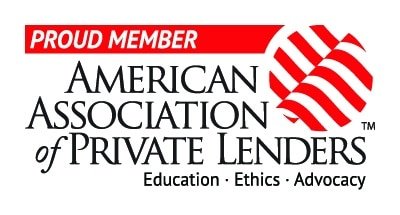The Critical Crossroads: Why Your Rental Property Needs a Business Loan
Are you ready to jump into real estate investing, but keep hitting a wall with the money? You’re not alone. Many new and even experienced investors get stuck trying to figure out the difference between a personal mortgage and a business loan for rental property options. It’s the moment of truth for your investment goals, and getting this wrong can cost you thousands—or even sink your deal entirely.
In fact, according to the U.S. Small Business Administration, the Real Estate and Rental and Leasing sector is home to over 3.4 million small businesses in the U.S. This confirms what savvy investors already know: your rental property is not just a side hustle; it’s a legitimate, capital-intensive business that requires professional financing.
The Solution: Expert Guidance to a Better Loan
The good news is that securing the right financing is easier than you think when you have an expert guiding you. We are ResidentialLender.Net, your 30-year expert underwriter, table, and correspondent lender. We specialize in cutting through the confusion of investment property finance. We make it easy to get the right business loan for your rental property.
In this guide, you’ll learn the key steps to unlocking better financing:
- Why a business loan is often superior to a traditional personal mortgage for investment properties.
- The top loan options are specifically designed for real estate investors.
- What lenders actually look for when evaluating your business and property.
- A clear, step-by-step path to get started with a successful application.
Ready to stop dreaming about cash flow and start doing the deals? Let’s dive into exactly how to get a business loan for rental property and turn your investment vision into a profitable reality.
Would you like to start by exploring the core differences between a business loan and a personal loan for rental properties?
Why a True Business Loan is Your Best Bet for Rental Property Investment
When you decide to buy an investment property, you’re not just purchasing another house; you’re starting a business. Treating your rental as an income-generating business is the key to unlocking the most flexible and scalable financing options. This is why an actual business loan is often your best bet, moving you away from restrictive personal financing.
What is a Business Loan for Rental Property?
When real estate investors ask, “Can I use a business loan to buy rental property?”, the answer is yes. Still, it’s essential to clarify the terminology. While traditional business loans (like SBA loans) exist, the most common and powerful tool for rental investors is a specialized form of commercial financing.
A business loan for rental property is a financial product in which the lending decision is primarily based on the asset’s ability to generate income (cash flow), rather than solely on the borrower’s personal debt-to-income ratio.
This is the fundamental difference between a personal and a business loan for rental property. Personal loans focus on you; business loans focus on the deal. This type of commercial mortgage often falls into categories such as Debt Service Coverage Ratio (DSCR) loans or portfolio loans.
Personal vs. Business Loan: A Quick Comparison
The table below highlights why shifting to a business loan framework offers greater freedom and scalability for investors:
| Feature | Personal Mortgage (Primary Home) | Business Loan (Rental Property) |
| Loan Focus | Your personal income & credit | Property’s projected rental income (DSCR) |
| Limit on Loans | Stricter (usually limited to 10 conventional max) | Highly scalable (often no cap) |
| Liability | Personal Guarantee (High) | Often Non-Recourse or Lite/No-Doc |
| Speed | Often slower processing & intense paperwork | Can be very fast (e.g., Hard Money/Private) |
| Lender Type | Traditional Banks (Title 1-4) | Commercial, Correspondent, & Private Lenders |
The Investor Mindset: Treat Your Asset as an Income-Generating Business
Adopting the “Investor Mindset” means viewing your rental property not as a personal liability, but as a mini-corporation. This aligns perfectly with lending trends.
For example, real estate makes up a significant segment of the U.S. small business landscape. As of the most recent data from the Small Business Administration (SBA), the Real Estate and Rental and Leasing sector accounts for over 3.4 million small businesses nationwide. These are not “personal” investments; they are businesses fueling the economy.
By seeking a business loan, you align your financing with this reality. You can scale your portfolio without hitting the 10-loan limit of conventional mortgages. You can often obtain non-recourse loans, meaning your personal assets are protected if the business fails. This professional approach to financing is what separates hobbyists from serious, scalable real estate empires.
Would you like to learn about the specific types of business loans—such as DSCR and portfolio loans—that are best suited for rental properties?
The Best Business Loans for Rental Property Investors: Your Top Options
For a serious real estate investor, the goal isn’t just to finance one property; it’s to scale a successful income-generating business. That requires moving beyond traditional residential mortgages and leveraging the right business-purpose loan products. At ResidentialLender.Net, we structure solutions for every stage of your investment journey.
Here are the best business loan categories tailored for specific investor goals, from long-term stability to quick-turn profits.
A. The Long-Term Investor (Buy-and-Hold/Rent)
Suppose your strategy is to build passive income and equity over time. In that case, your focus should be on scalable, asset-based financing that doesn’t tie up your personal credit or require mountains of W2 paperwork.
1. Debt Service Coverage Ratio (DSCR) Loans
DSCR loans are arguably the most game-changing financing tool for modern real estate investors. These are true business loans for rental property, with qualification based on the property’s cash flow, not your personal income.
Key Feature: The lender calculates the property’s Debt Service Coverage Ratio (DSCR) by dividing the potential gross rental income by the mortgage debt (including principal, interest, taxes, and insurance). A ratio of 1.0 or higher means the rent fully covers the debt.
Why It’s Great:
- No Income Verification: Forget tax returns, W2S, or employment history. Qualification is based on the property. This is ideal for self-employed individuals or those with complex financials.
- Scalability: Because the loan isn’t tied to your personal DTI (Debt-to-Income), there is often no limit on the number of properties you can finance, making it perfect for rapid portfolio growth.
- Versatility: DSCR loans are flexible and can be used for single-family residences (SFRs), condos, and townhomes, and are excellent for business loans for multi-family rental properties (up to 4 units, and sometimes more).
Statistic Insight: DSCR loans fall into the “Non-Qualified Mortgage” (Non-QM) space, which has seen explosive growth as investors seek alternative financing. They represent the quickest path to building an extensive rental portfolio without the red tape of Fannie Mae or Freddie Mac limits.
2. Traditional Term Loans and Portfolio Loans
Once you’ve acquired multiple stabilized properties, portfolio loans become highly efficient.
Traditional Term Loans: These are typically commercial mortgages offered by regional banks or correspondents like us. They require more standard documentation but offer longer terms (up to 30 years) and competitive rates for well-qualified, established investors.
Portfolio Loans: Instead of refinancing 10 separate properties one by one, a portfolio loan allows you to combine multiple investment properties under a single, blanket mortgage.
- Efficiency: This reduces closing costs, saves time, and simplifies your accounting.
- Cross-Collateralization: It allows you to leverage the total equity across all assets to secure more favorable terms.
B. The Short-Term Investor (Fix-and-Flip/Bridge)
If your business model focuses on quickly renovating and reselling property, you need speed and high loan-to-cost ratios. The high interest rates associated with these options are manageable because the repayment term is short, often less than 18 months.
1. Hard Money Business Loan for Rental Property (Fix-and-Flip)
Hard money is the go-to short-term business loan for rental property flip projects because it prioritizes the asset’s value and potential (After-Repair Value, or ARV) over the borrower’s long-term financials.
- Speed is King: Hard money loans can close in as little as 7-14 days—a crucial advantage when securing a distressed property that can’t qualify for traditional financing.
- Focus on ARV: Lenders typically fund a high percentage of the purchase price and 100% of the rehab costs, based on the property’s anticipated value after renovations.
- Our Advantage: ResidentialLender.Net works with a vast network of over 1,000 private and correspondent hard money lenders. This extensive network means we can quickly match your specific project, location, and experience level with the absolute best rate and terms, regardless of how fast you need to close.
2. Bridge Loans
A bridge loan is a short-term, high-interest loan designed to “bridge” the gap between two transactions.
- Primary Use: They are often used to quickly buy a new investment property before the sale of an old one closes, or to pay off a construction loan while waiting for long-term (permanent) financing to be finalized.
- Flexibility: Bridge loans are flexible and can be tailored to various projects, including commercial properties or large multi-unit residential buildings.
C. The Specialty Investment Loan (Unique Solutions)
Sometimes, your investment strategy or the nature of the property requires a more specialized financing solution. These loans address unique business structures or property types.
1. SBA Loan for Rental Property Business
While the Small Business Administration (SBA) does not typically finance pure rental property investments (which are considered passive), the SBA 504 and 7(a) programs can be used for real estate when the property is owner-occupied or mixed-use.
- Owner-Occupied Rule: The biggest restriction is that you must occupy a significant portion of the property for your active business operations. For an SBA 504 loan, the business must occupy at least 51% of an existing building or 60% of a new construction project.
- Real Estate in the SBA Portfolio: According to the SBA’s recent activity reports, the Real Estate and Rental and Leasing sector is consistently among the top industries receiving SBA loans, demonstrating that commercial real estate purchases and improvements are a significant function of these programs.
- The Benefit: If you plan to run a property management office, an appliance repair business, or any other service business out of one unit of a multi-unit property, an SBA loan offers long terms (up to 25 years) and low down payments (often 10% to 15%).
2. FHA Multifamily Loans
These are powerful government-backed loans, often referred to as HUD/FHA loans, designed for financing larger, stabilized multifamily residential projects (typically 5+ units).
- Size: These loans are serious commercial products, perfect for investors scaling up to apartment complexes or large business loans for multi-family rental property projects.
- Long Terms: They are known for extremely long terms (up to 35 years) and high leverage, offering robust stability for long-term operation.
3. Lite-Doc and Stated Income Loans
For the self-employed, entrepreneurs, or those who manage their finances through multiple LLCs, a traditional “full-doc” loan application can be a nightmare.
- The Appeal: Lite-Doc (or Low-Doc) loans require minimal documentation, sometimes asking only for bank statements rather than full tax returns.
- Stated Income Loans: This product appeals directly to those with high assets but complicated income statements. You state your income on the application, and the lender verifies your ability to repay based on substantial cash reserves, excellent credit, and significant collateral. Yes, we have a solution for you!
No matter your investment strategy—from a quick flip to building a 100-door empire—ResidentialLender.Net provides the deep expertise and the loan products required to finance your commercial rental property business with confidence and speed.
Qualifying for a Business Loan for Rental Property: What Lenders Really Look For
With over 30 years of experience as expert underwriters and correspondent lenders in the investment property space, we know the exact metrics that determine success or failure in financing. Getting a business loan for a rental property is less about proving your personal income and more about demonstrating the deal’s viability.
When you apply for a commercial mortgage or a DSCR loan, lenders focus on three main pillars. Understanding these will put you far ahead of other applicants.
The Property Itself (The Deal)
For investment property loans, the property serves as the primary security and revenue source. This is the cornerstone of the modern requirements for a business loan for rental property.
1. Debt Service Coverage Ratio (DSCR)
The DSCR is the single most critical factor for buy-and-hold investors. It is the core metric that confirms your business (the rental property) can reliably pay its own debts.
- Simple Explanation: The DSCR is the ratio of the property’s gross rental income to its total debt service (Principal, Interest, Taxes, Insurance, and HOA dues, or PITIA).
- The Golden Rule: Lenders look for a DSCR of 1.25 or higher. This means the property’s income is 125% of the total mortgage payment. This extra 25% serves as a financial cushion to cover typical business expenses, such as maintenance, unexpected repairs, and periods of vacancy.
- Example: If the property’s projected monthly rent is $2,500 and the proposed monthly mortgage payment (PITIA) is $2,000, your DSCR is $2,500 / $2,000 = 1.25. This is a beautiful deal for a lender because it demonstrates a strong, immediate cash flow.
2. Collateral and Valuation
Lenders analyze the type of asset you are financing and its market value to determine risk and the maximum loan amount (Loan-to-Value, or LTV).
Fix-and-Flip Collateral: For hard money, the collateral is assessed not only on its current purchase price but also on its After-Repair Value (ARV). The loan is often structured to cover 70-75% of the ARV, thereby mitigating the lender’s risk once the renovation is complete.
Long-Term Collateral: We finance a variety of residential assets, including:
- Single-Family Rentals (SFR)
- Condos and Townhomes
- Multi-family properties (2–4 units)
- Some mixed-use properties (part residential, part commercial)
Lenders always prioritize properties that are in marketable condition or have a clear path to stabilization.
Your Financial Health (The Borrower)
While a business loan for rental property focuses heavily on the asset, your personal financial stability—known as the borrower profile—still matters, especially when qualifying for the best rates.
1. Credit Score (FICO)
Your credit history provides a quick snapshot of your reliability in managing financial obligations.
- Minimum Threshold: For most institutional business-purpose loans, the minimum credit score is typically around 660, but some non-recourse or bridge loans may go lower, sometimes down to 620.
- The Rate Factor: Crucially, a higher score means better business loan rates for rental property. Investors with scores above 700-740 can access the most competitive pricing, directly impacting your profitability and monthly cash flow.
2. Reserves and Experience
Lenders want assurance that you can weather common business challenges, such as unexpected maintenance or a vacant unit. This is demonstrated through your liquid assets, or reserves.
- Cash in the Bank: You typically need to show enough cash reserves to cover 6 to 12 months of the mortgage payments (PITIA) for the subject property, plus a few months of expenses for any other financed properties you own.
- Business Experience: While first-time investors are welcome, experienced investors (those who have owned 2- 3+ properties in the last 12-24 months) are considered lower risk. This experience often qualifies them for higher LTVs or lower interest rates. Your track record of successful property management and investment is a key factor.
The Network Advantage (Working with Us)
The most common mistake investors make is choosing a single bank that offers only one narrow loan product. As a table and correspondent lender, ResidentialLender.Net provides a strategic advantage that answers the question of how to find a private lender business loan for rental property.
Correspondent Lending: We originate and underwrite loans directly, which means we control the process from start to finish. This gives you direct, streamlined access to funds and faster approvals.
Private and Institutional Network: We leverage a vast network that includes:
- 1,000+ Private Lenders and Investors for rapid, high-leverage hard money and bridge financing.
- Institutional Brokers who provide long-term portfolio and commercial products.
- Direct Access to capital markets for DSCR and conventional commercial term loans.
This powerful combination means we don’t just offer one solution; we match your unique financial profile and property criteria to the entire spectrum of available investment capital, ensuring you get the most advantageous rate and terms for your growing business.
Do you have a specific property type in mind, or would you like to move on to the final steps for submitting your loan application?
Ready to Go? How to Get a Business Loan for Rental Property Today
You understand the power of a business loan, you know the top options—from scalable DSCR loans to lightning-fast Hard Money for flips—and you know precisely what an underwriter looks for. The only thing left is to take action.
Stop wasting time with lenders who only understand personal mortgages. At ResidentialLender.Net, we have streamlined the process for getting a business loan for rental property into three simple, professional steps designed for speed and certainty.
The ResidentialLender.Net 3-Step Path to Funding
We leverage our three decades of experience and our vast correspondent network to get you from application to closing faster than a traditional bank.
1. The Discovery Call
This is where we listen and assess your unique investment business.
- Tell us your goal: Are you aiming for rapid expansion with buy-and-hold DSCR loans? Are you financing a value-add fix-and-flip? Is your target a multi-family rental property?
- We immediately analyze the core asset metrics (LTV, DSCR potential) and your borrower profile (FICO, experience) to determine the best commercial product for you.
2. Fast Prequalification & Matching
Forget submitting the same paperwork to ten different banks. We do the heavy lifting for you.
- We instantly match your project to the perfect funding source from our 1,000+ network of private investors, institutional brokers, and correspondent lenders.
- You receive a clear, concise offer outlining the best terms for DSCR, Hard Money, Portfolio, or Specialty Loans available to you.
3. Quick Close & Funding
Our underwriting expertise ensures a clean, fast closing with no last-minute surprises.
- Because we act as both an underwriter and a correspondent lender, our process is streamlined.
- You get your funds, secure your property, and move forward with your successful real estate investment business.
Special Offer: Exclusive Program for Brokers and Realtors
Your clients trust you to find them the perfect property; partner with us to ensure they get the ideal financing, every time. As a 30-year underwriter and table lender, we offer exclusive referral programs designed for mutual success.
- Reliable Funding: Give your clients access to dependable DSCR and non-QM loans that skirt conventional limits.
- Fast Closings: Close deals in weeks, not months, making your client’s offer more competitive in a hot market.
- Dedicated Support: Our expert underwriters work directly with you to structure complicated deals and fund complex investor portfolios.
Partner with a 30-year underwriter for fast closing and reliable funding that helps you close more investment deals.
Stop letting complex financing hold back your portfolio. You have the deal; we have the capital.
Call ResidentialLender.Net today for your free, no-obligation funding analysis and take the first step toward securing your business loan for rental property!
Would you like to speak with a representative, or would you prefer a link to our quick online pre-qualification form?
FAQs
1. Are business loan interest rates for rental property higher than traditional residential mortgage rates?
Answer: Yes, as a general rule, interest rates for business-purpose rental property loans (like DSCR and commercial mortgages) are typically 0.5% to 1.5% higher than the rate you would receive for a primary residence conventional mortgage. This difference is due to the increased risk lenders associate with investment properties, as borrowers are statistically more likely to default on investment properties than on their homes. However, the higher rate is often offset by the loan’s benefits, such as faster closing and less documentation required.
2. Can I get a truly non-recourse business loan for my rental property?
Answer: Non-recourse loans, which protect your personal assets from the lender in the event of default (limiting the lender solely to the collateral property), are typically reserved for larger, high-value commercial properties or multi-family deals (5+ units) financed through programs like Fannie Mae, Freddie Mac, or CMBS. While most business loans for 1-4 unit residential rentals are technically recourse (requiring a personal guarantee), many lenders offer Lite-Recourse or Non-Recourse Lite options, such as DSCR loans, where the personal guarantee is limited to “bad boy” carve-outs (e.g., fraud, misrepresentation, or voluntary bankruptcy).
3. How fast can I close on a DSCR loan compared to a traditional conventional loan?
Answer: DSCR loans are significantly faster than traditional conventional investment mortgages. Because a DSCR loan focuses on the property’s cash flow rather than complex personal income verification and tax documents, the underwriting process is simplified. While a conventional loan can take 45 to 60+ days to close, a DSCR loan typically closes in 21 to 30 days, making your offer more competitive, especially if you need to close quickly.
4. What are the typical upfront costs and fees for a rental property business loan?
Answer: Unlike a primary residence mortgage, investment property business loans often have higher upfront fees, usually calculated as a percentage of the loan amount, known as “points” or an “origination fee.” Common costs include:
- Origination/Underwriting Fee: Typically 1% to 5% of the loan amount, depending on the product (Hard Money is often higher).
- Appraisal: Required to determine both the property value and the market rental income for the DSCR calculation.
- Guarantee/Processing Fee: Often applicable to SBA loans or specialized non-QM products.
5. Can I use a business loan to finance the construction or renovation of a rental property?
Answer: Yes, dedicated business loan products are the primary method for construction and significant renovation financing.
- Hard Money Loans and Fix-and-Flip Loans are short-term loans explicitly designed to fund the purchase and rehab costs based on the After-Repair Value (ARV).
For ground-up construction or very substantial rehab on 5+ unit properties, Construction-to-Permanent Loans (commercial bank loans) or SBA 504 loans (for owner-occupied portions) are often utilized. These require a detailed construction budget and a draw schedule.
